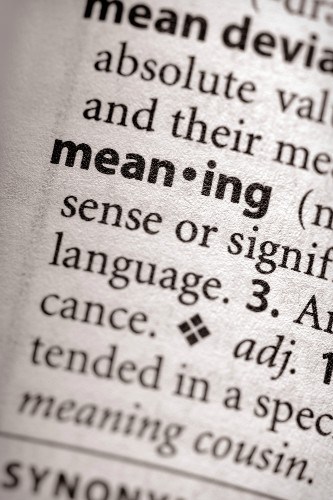About The Word Revolution

Learn about the word Revolution to help solve your crossword puzzle. Discover Revolution definitions and meaning, origins, synonyms, related terms and more at the free Crossword Dictionary.
Revolution

| Revolution Definition And Meaning |
|---|
What's The Definition Of Revolution?
[n] the overthrow of a government by those who are governed
[n] a drastic and far-reaching change in ways of thinking and behaving; "the industrial revolution was also a cultural revolution" [n] a single complete turn (axial or orbital); "the plane made three rotations before it crashed"; "the revolution of the earth about the sun takes one year" Synonyms | Synonyms for Revolution: gyration | rotation Related Terms | Find terms related to Revolution: See Also | alteration | American Revolution | American War of Independence | axial motion | axial rotation | Bloodless Revolution | change | Chinese Revolution | clockwise rotation | counterclockwise rotation | counterrevolution | dextrorotation | English Revolution | February Revolution | French Revolution | Glorious Revolution | green revolution | group action | levorotation | Mexican Revolution | modification | orbital motion | orbital rotation | roll | Russian Revolution | spin | turn | turning | War of American Independence Revolution In Webster's Dictionary \Rev`o*lu"tion\, n. [F. r['e]volution, L. revolutio.
See {Revolve}.]
1. The act of revolving, or turning round on an axis or a
center; the motion of a body round a fixed point or line;
rotation; as, the revolution of a wheel, of a top, of the
earth on its axis, etc.
2. Return to a point before occupied, or to a point
relatively the same; a rolling back; return; as,
revolution in an ellipse or spiral.
That fear Comes thundering back, with dreadful
revolution, On my defenseless head. --Milton.
3. The space measured by the regular return of a revolving
body; the period made by the regular recurrence of a
measure of time, or by a succession of similar events.
``The short revolution of a day.'' --Dryden.
4. (Astron.) The motion of any body, as a planet or
satellite, in a curved line or orbit, until it returns to
the same point again, or to a point relatively the same;
-- designated as the annual, anomalistic, nodical,
sidereal, or tropical revolution, according as the point
of return or completion has a fixed relation to the year,
the anomaly, the nodes, the stars, or the tropics; as, the
revolution of the earth about the sun; the revolution of
the moon about the earth.
Note: The term is sometimes applied in astronomy to the
motion of a single body, as a planet, about its own
axis, but this motion is usually called rotation.
5. (Geom.) The motion of a point, line, or surface about a
point or line as its center or axis, in such a manner that
a moving point generates a curve, a moving line a surface
(called a surface of revolution), and a moving surface a
solid (called a solid of revolution); as, the revolution
of a right-angled triangle about one of its sides
generates a cone; the revolution of a semicircle about the
diameter generates a sphere.
6. A total or radical change; as, a revolution in one's
circumstances or way of living.
The ability . . . of the great philosopher speedily
produced a complete revolution throughout the
department. --Macaulay.
7. (Politics) A fundamental change in political organization,
or in a government or constitution; the overthrow or
renunciation of one government, and the substitution of
another, by the governed.
The violence of revolutions is generally
proportioned to the degree of the maladministration
which has produced them. --Macaulay.
Note: When used without qualifying terms, the word is often
applied specifically, by way of eminence, to: (a) The
English Revolution in 1689, when William of Orange and
Mary became the reigning sovereigns, in place of James
II. (b) The American Revolution, beginning in 1775, by
which the English colonies, since known as the United
States, secured their independence. (c) The revolution
in France in 1789, commonly called the French
Revolution, the subsequent revolutions in that country
being designated by their dates, as the Revolution of
1830, of 1848, etc.
|
More Crossword Puzzle Words
A | B | C | D | E | F | G | H | I | J | K | L | M | N | O | P | Q | R | S | T | U | V | W | X | Y | Z
Cross Word Of The Day
- Atomic reactor ‐ a nuclear reactor that uses controlled nuclear fission to generate…
- Purplish pink ‐ a purplish pink dye was discovered in 1859, the year a battle…
- Cotyloidal ‐ of the cup-shaped socket that receives the head of the thigh…
- Bonk ‐ hit hard [v] have sexual intercourse with; "This student sleeps…
- Thomas j. hanks ‐ United States film actor…
- Consumer finance company ‐ a finance company that makes loans to people who have trouble…
- Empetraceae ‐ heathlike shrubs
- Dance ‐ taking a series of rhythmical steps (and movements) in time to…
- Writhed ‐ twisted (especially as in pain or struggle); "his mad contorted…
- Point in time ‐ a very short period of time; "at that point I had…